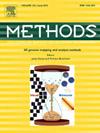ResDeepGS: A deep learning-based method for crop phenotype prediction
IF 4.3
3区 生物学
Q1 BIOCHEMICAL RESEARCH METHODS
引用次数: 0
Abstract
Genomic selection (GS) is a breeding technique that utilizes genomic markers to predict the genetic potential of crops and animals. This approach holds significant promise for accelerating the improvement of agronomic traits and addressing food security challenges. While traditional breeding methods based on statistical or machine learning techniques have been useful in predicting traits for some crops, they often fail to capture the complex interactions between genotypes and phenotypes. Additionally, these methods struggle to handle large-scale data, limiting their predictive performance. Recent advancements in deep learning offer a promising solution by better capturing nonlinear relationships and gene interactions.
In this study, we propose a novel crop phenotype prediction method, ResDeepGS, which leverages deep learning techniques. The model consists of two main components: the feature selection module and the phenotype prediction module. The feature selection module employs an incremental recursive feature elimination method, combining the strengths of recursive feature elimination and incremental learning to improve both the efficiency and reliability of feature selection. The phenotype prediction module integrates an enhanced multi-layer convolutional neural network with residual structures and dropout strategies to better capture complex relationships in gene data, accelerate convergence, and reduce overfitting. Through extensive experimentation, we demonstrate that ResDeepGS outperforms current state-of-the-art methods on three datasets: wheat, maize, and soybean. Notably, on the wheat dataset, ResDeepGS improved prediction accuracy by 5% to 9%, highlighting its superior performance in genomic selection tasks. These results underscore the robustness and adaptability of ResDeepGS, offering a promising solution for enhancing crop breeding efficiency and addressing future food security challenges.
ResDeepGS:基于深度学习的作物表型预测方法。
基因组选择(GS)是一种利用基因组标记来预测作物和动物遗传潜力的育种技术。这种方法对加速改善农艺性状和应对粮食安全挑战具有重大希望。虽然基于统计或机器学习技术的传统育种方法在预测某些作物的性状方面很有用,但它们往往无法捕捉基因型和表型之间复杂的相互作用。此外,这些方法难以处理大规模数据,限制了它们的预测性能。深度学习的最新进展通过更好地捕捉非线性关系和基因相互作用提供了一个有希望的解决方案。在这项研究中,我们提出了一种新的作物表型预测方法,ResDeepGS,它利用了深度学习技术。该模型由两个主要部分组成:特征选择模块和表型预测模块。特征选择模块采用增量递归特征消除方法,结合递归特征消除和增量学习的优点,提高了特征选择的效率和可靠性。表型预测模块将增强的多层卷积神经网络与残差结构和dropout策略集成在一起,以更好地捕获基因数据中的复杂关系,加速收敛并减少过拟合。通过大量的实验,我们证明了ResDeepGS在小麦、玉米和大豆这三个数据集上优于当前最先进的方法。值得注意的是,在小麦数据集上,ResDeepGS的预测精度提高了5%到9%,突出了其在基因组选择任务中的优越性能。这些结果强调了ResDeepGS的鲁棒性和适应性,为提高作物育种效率和应对未来粮食安全挑战提供了一个有希望的解决方案。
本文章由计算机程序翻译,如有差异,请以英文原文为准。
求助全文
约1分钟内获得全文
求助全文
来源期刊

Methods
生物-生化研究方法
CiteScore
9.80
自引率
2.10%
发文量
222
审稿时长
11.3 weeks
期刊介绍:
Methods focuses on rapidly developing techniques in the experimental biological and medical sciences.
Each topical issue, organized by a guest editor who is an expert in the area covered, consists solely of invited quality articles by specialist authors, many of them reviews. Issues are devoted to specific technical approaches with emphasis on clear detailed descriptions of protocols that allow them to be reproduced easily. The background information provided enables researchers to understand the principles underlying the methods; other helpful sections include comparisons of alternative methods giving the advantages and disadvantages of particular methods, guidance on avoiding potential pitfalls, and suggestions for troubleshooting.
 求助内容:
求助内容: 应助结果提醒方式:
应助结果提醒方式:


